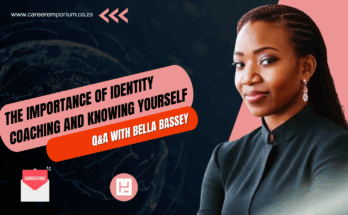We’ve all heard all the CV advise on the internet and we do not know which ones to trust. Well, we just simplified things for you. In this #InspirationWednesdays feature we chat to Sisanda Dani to inspire us to craft compelling CVs. She comes with a lot of experience in the field and we are about to lay all the myths to rest with her. Here we go:
Sibusiso Nkosi: A lot of us seem to be confused with the term Talent Acquisition vs Recruitment. Can you please break it down for us?
Sisanda Dani: They do the same thing. They aim to fill open positions. Recruitment is more reactive to filling the roles while Talent Acquisition is more on the strategic side. For instance, building pipelines of future positions before they are even available and connecting with future candidates.
Sibusiso Nkosi: What elements, generally, should a CV have in order for it to be deemed ready for a talent Acquisition process?
Sisanda Dani: It should be updated every time there are changes in your career. It should have the candidates’ Qualifications as well Experience with detailed description of the duties and responsibilities as well as dates. Not to forget their contact details. You will be surprised how many candidates forget to put their numbers and email address on their CV.
Sibusiso Nkosi: What is the connection between the ATS system and Talent Acquisition?
Sisanda Dani: An ATS System is an Applicant Tracking System that companies use to advertise positions and to update where candidates are in the process. The system maps candidates to the job by comparing the CV to the job advert. That is why it is important to customise your CV to the specific jobs you apply for.
Sibusiso Nkosi: What are some of the reasons why candidates get rejected for a job, both from a CV perspective and just in general?
Sisanda Dani: From a CV perspective I would say, it is not putting enough duties and responsibilities relating to the job you are applying for. Recruiters use specific key words to search for specific skills on a candidates CV. So, if your CV does not have duties, it will not come up in the search. Make sure your last 3 roles have duties and responsibilities. Leave out things like hobbies, ID numbers or full addresses.
In general, it is not doing enough research on the company or role and rambling when asked questions in the interview. It is okay to say you do not know the answer to the question, but you are a fast learner and willing to learn. Or better yet, ask the interviewer to rephrase the question or repeat it back to them if you do not understand it. Do not be nervous. Interviewers are people too.
Sibusiso Nkosi: What tips can you give young people to prepare themselves for a Talent Acquisition process?
Sisanda Dani:
- Make your CV as simple as possible. Forget borders, pictures, and fancy CVs. There is a free cv template on word, use that. Also, proofread for spelling and grammar errors.
- Read all instructions. Many a times candidates will email recruiters asking questions that are already on the email – that points out that you do not pay attention to detail.
- Prepare, prepare prepare! I am not saying memorise what is on the internet. It means know yourself so that you sound natural when asked questions about yourself. Sometimes candidates prepare on the same material online and have the same answers. Be authentic.
Do not forget to subscribe to our newsletter to have any new article sent to you directly! Sign up for free.




